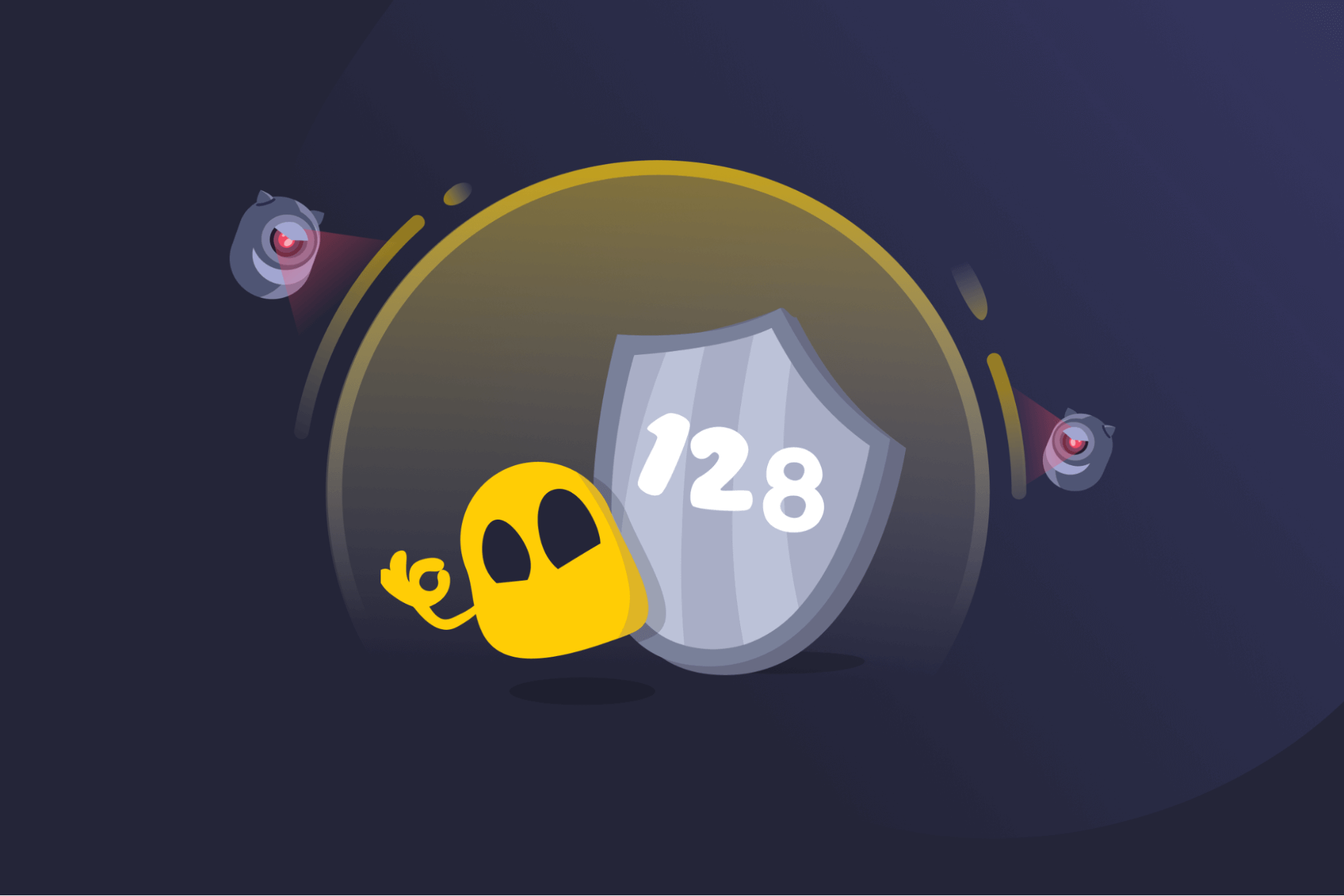128-Bit Encryption

128-Bit Encryption Definition
128-bit encryption is a type of cryptographic algorithm, which is a method of protecting data using a cryptographic key that is 128 bits long. A bit is the smallest unit in computing, typically represented by a 1 or 0. With 128 of them, there are 2128 possible key combinations. That’s roughly 340 undecillion, a number with 39 digits. That number is so big that guessing the key by brute force would take modern hardware billions of years.
One of the most common implementations of this key is 128-bit AES (Advanced Encryption Standard). It uses 128-bit encryption in several rounds, applying it differently each time.
Due to its security, 128-bit encryption is considered safe for everyday activities, like online banking, browsing, shopping, or business communications. However, future quantum computers may eventually break it, which is why many institutions that handle classified data (like the government) typically use stronger 256-bit encryption.
How 128-Bit Encryption Works
The process of encryption and decryption has 3 main steps:
- Key generation: Creates a random 128-bit key.
- Encryption: Scrambles the original message (plaintext) with the key, using various binary mathematical operations, like addition, substitution, or transposition. The encrypted output is called ciphertext.
- Decryption: Reverses the changes applied during encryption using the 128-bit key, which restores the original data.
The exact steps depend on how 128-bit encryption is implemented, but the principle is the same: only the right key can reverse the encryption and restore data. The key itself must be exchanged securely between the sender and the recipient, which is typically handled by protocols like TLS (Transport Layer Security).
Where Is 128-Bit Encryption Used?
- Secure websites: TLS, which secures HTTPS websites, often uses AES with 128-bit keys.
- Wi-Fi networks: WPA2 relies on 128-bit AES encryption to keep wireless traffic private.
- Encryption tools: Tools like Windows BitLocker secure sensitive documents and drives with 128-bit encryption.
- VPNs: Protocols like OpenVPN and IPsec can be configured with 128-bit encryption, which is lighter on resources than 256-bit encryption.
128-Bit Encryption vs 256-Bit Encryption
| 128-Bit Encryption | 256-Bit Encryption | |
| Security | Strong security for most everyday activities | Very high security, suitable for sensitive or classified data |
| Performance | Faster and less resource-heavy | Slower, requires more processing power |
| Common uses | Websites, Wi-Fi, file encryption, consumer VPNs | Military, government, secure VPNs |
| Breakability | May be broken by quantum computers | Likely unbreakable even by quantum computers |
Read More
- What Is VPN Encryption? Everything You Need to Know
- What Is Post-Quantum Cryptography?
- What Is an Encryption Key?
FAQ
Hypothetically, yes, but it’s extremely difficult. A brute-force attack (which systemically tries every single key) would take billions of years to break 128-bit encryption even with modern supercomputers. If the encrypted data is compromised, it’s usually because of weak passwords or software flaws, not the encryption itself. This makes 128-bit encryption secure for everyday use, like online banking or private messaging.
Eventually, yes, but not in the near future. Quantum computers today aren’t powerful enough to crack 128-bit encryption, and experts estimate they won’t be any time soon. Still, many organizations are adopting stronger, "quantum-proof" standards, like 256-bit encryption, which is expected to stay secure even in the quantum era.
Some VPNs use 128-bit encryption because it's slightly faster and less resource-heavy than 256-bit. This can make a difference on older, less powerful devices or a slower internet connection. However, 256-bit encryption is more secure, making it more future-proof in the quantum era.

 45-Day Money-Back Guarantee
45-Day Money-Back Guarantee